Decentralized energy, also known as distributed energy, refers to the generation of electricity from a variety of small, modular sources located close to the point of use. This contrasts with the traditional model of centralized power, where electricity is produced at large, remote plants and transmitted over long distances to end users.
Local generation can include technologies such as solar panels, wind turbines, micro-turbines, fuel cells, and combined heat and power (CHP) systems.
These energy solutions can be implemented in residential, commercial, and industrial settings, offering a more flexible and localized approach to meeting energy demands. Distributed systems provide several benefits compared to conventional power generation.
By producing electricity closer to the point of use, they minimize transmission and distribution losses, which are a major source of inefficiency in traditional grids.
Moreover, this approach enhances grid resilience by reducing the impact of outages and improving overall reliability. It also facilitates the integration of renewable energy sources, contributing to a more sustainable and environmentally friendly energy system.
Contents
Key Takeaways
- Decentralized energy is transforming the energy industry by shifting power generation from centralized sources to smaller, localized systems.
- The benefits of decentralized energy for resilient power systems include increased reliability, reduced transmission losses, and improved energy security.
- Technology plays a crucial role in advancing decentralized energy systems, enabling efficient energy generation, storage, and distribution.
- Overcoming challenges in implementing decentralized energy solutions requires addressing issues such as grid integration, financing, and regulatory barriers.
- Embracing decentralized energy solutions is the future of resilient power systems, with policy and regulatory implications shaping the transition towards a more sustainable and reliable energy landscape.
The Benefits of Decentralized Energy for Resilient Power Systems
The rise of decentralized energy has brought about numerous benefits for resilient power systems. One of the key advantages is increased reliability and resilience in the face of disruptions. By dispersing energy generation across multiple smaller units, decentralized energy systems are less susceptible to large-scale outages caused by natural disasters, cyber-attacks, or equipment failures.
This enhanced resilience is particularly valuable in ensuring continuous power supply to critical infrastructure, such as hospitals, emergency response facilities, and communication networks during times of crisis. Furthermore, decentralized energy can contribute to load management and peak shaving, helping to alleviate strain on the grid during periods of high demand. This can lead to more stable and efficient operation of the power system as a whole.
Additionally, decentralized energy solutions often empower end-users to take greater control over their energy consumption and production, fostering a sense of energy independence and self-sufficiency. This can lead to cost savings and reduced reliance on centralized utilities, ultimately increasing the overall resilience of the energy infrastructure.
How Decentralized Energy is Transforming the Energy Industry
The rise of decentralized energy is fundamentally reshaping the power industry by challenging traditional models of generation and distribution. In the past, centralized utilities held monopolies over electricity supply, but the spread of distributed technologies has created a more diverse and competitive landscape.
This transition has opened opportunities for smaller producers—including homeowners, businesses, and community cooperatives—to take part in the energy market. At the same time, advancements in digital tools and smart grid solutions have enabled better integration and management of local energy resources.
These innovations support new mechanisms such as peer-to-peer trading and virtual power plants, where aggregated assets work together to provide grid services.
Together, these developments are driving innovation and fostering a more dynamic, responsive energy ecosystem. With sustainability and environmental responsibility at the forefront, distributed renewable solutions are accelerating the shift toward a cleaner, more resilient future.
Overcoming Challenges in Implementing Decentralized Energy Solutions
| Challenges | Impact | Solutions |
|---|---|---|
| Lack of infrastructure | Limited access to energy | Invest in building infrastructure |
| High initial costs | Financial barrier for implementation | Explore financing options |
| Regulatory barriers | Legal constraints for decentralized energy | Advocate for supp I ortive policies |
| Technical complexity | Difficulty in implementation | Provide technical training and support |
While distributed energy offers many advantages, its widespread adoption also faces several challenges. A key obstacle is the need for robust regulatory frameworks and market structures that can effectively integrate smaller energy resources into existing grid systems. This requires setting fair interconnection standards, ensuring proper compensation for local generation, and establishing clear rules for grid access and operation.
Technical issues such as grid stability, voltage regulation, and system coordination must also be managed to maintain overall reliability. Financial barriers—including high upfront costs and limited access to capital—can further hinder deployment, especially for smaller participants.
Ongoing research and innovation are helping address these challenges through advanced grid management tools, standardized protocols, and financial incentives that encourage investment in distributed solutions.
As these obstacles are reduced, the role of decentralized power in building more resilient energy systems becomes increasingly achievable.
The Role of Technology in Advancing Decentralized Energy Systems
Technological advancements are key to unlocking the full potential of decentralized energy. The integration of smart grids, advanced metering, and real-time monitoring enables more efficient management of distributed resources. These tools support dynamic load balancing, demand response, and greater visibility into grid operations, which strengthen reliability and resilience.
Innovations in energy storage are also critical for addressing the intermittency of renewables like solar and wind. By capturing excess power during periods of low demand and dispatching it when needed, storage systems enhance flexibility and ensure a stable energy supply.
In addition, digital platforms and data analytics empower consumers to optimize energy use, participate in demand-side programs, and increase self-consumption of locally generated electricity. As these technologies evolve, they will drive decentralized power toward greater efficiency, reliability, and long-term resilience.
Policy and Regulatory Implications of the Rise of Decentralized Energy
The growth of distributed energy systems presents significant policy and regulatory challenges that must be carefully addressed to ensure a smooth transition to a more resilient and sustainable power network. Policymakers need to develop frameworks that enable the integration of these resources while preserving grid stability and reliability. This involves establishing clear interconnection standards, adopting net metering policies, and creating fair compensation mechanisms for local energy producers.
Regulations must also focus on market design to promote fair competition and wider participation in electricity markets. Updating current systems to accommodate new models—such as peer-to-peer energy trading and aggregated demand response—will be crucial. Additionally, policies that offer incentives through tax credits, grants, or feed-in tariffs can help reduce financial barriers and speed up the adoption of innovative technologies.
Governments play a vital role in driving innovation by supporting research and development aimed at advancing clean energy solutions. By aligning policies with long-term sustainability objectives and encouraging collaboration among industry stakeholders, they can help build a more flexible, reliable, and sustainable energy infrastructure.
The Future of Resilient Power Systems: Embracing Decentralized Energy Solutions
As the global energy landscape continues to evolve, distributed solutions offer significant potential for building resilient power systems that can withstand a variety of challenges. This transformation in how electricity is generated, distributed, and used empowers communities and businesses to take an active role in shaping their energy future while contributing to overall grid stability.
Expanding the use of local renewable resources will help lower greenhouse gas emissions and lessen the effects of climate change. These systems also strengthen energy independence, improve flexibility, and foster innovation throughout the energy sector. Moving forward, technological progress, supportive policy frameworks, and strong collaboration among stakeholders will be crucial to realizing their full potential.
By embracing this transformative approach, societies can build adaptive, sustainable, and secure energy infrastructures that meet the evolving needs of a dynamic world.
FAQ
What is decentralized energy?
Decentralized energy refers to the generation of energy from a variety of small-scale energy sources, located close to the point of use. This can include renewable energy sources such as solar panels, wind turbines, and small-scale hydroelectric systems, as well as combined heat and power (CHP) systems and energy storage technologies.
What are the benefits of decentralized energy for resilient power systems?
Decentralized energy offers several benefits for resilient power systems, including increased reliability, reduced transmission and distribution losses, improved energy security, and the ability to integrate renewable energy sources more effectively. It also provides greater flexibility and adaptability in the face of disruptions or disasters.
How is decentralized energy transforming the energy industry?
Decentralized energy is transforming the energy industry by shifting the focus from centralized, large-scale power plants to a more distributed and diverse energy generation landscape. This trend is driven by advancements in technology, changing consumer preferences, and the increasing availability of renewable energy sources.
What are some of the challenges in implementing decentralized energy solutions?
Challenges in implementing decentralized energy solutions include the need for updated infrastructure and grid modernization, regulatory barriers, financial considerations, and the integration of diverse energy sources into the existing energy system. Additionally, there may be technical and operational challenges in managing a more distributed energy network.
What is the role of technology in advancing decentralized energy systems?
Technology plays a crucial role in advancing decentralized energy systems by enabling the integration of renewable energy sources, improving energy storage capabilities, enhancing grid management and control, and facilitating the development of smart grid technologies. Advanced monitoring and control systems also play a key role in optimizing the performance of decentralized energy assets.
What are the policy and regulatory implications of the rise of decentralized energy?
The rise of decentralized energy has significant policy and regulatory implications, including the need to update existing regulations to accommodate distributed energy resources, establish fair compensation mechanisms for energy producers, and ensure grid reliability and stability in a more decentralized energy landscape. Policymakers also need to consider the impact of decentralized energy on traditional utility business models.
What is the future of resilient power systems in embracing decentralized energy solutions?
The future of resilient power systems lies in embracing decentralized energy solutions as a key strategy for enhancing energy security, reliability, and sustainability. This includes leveraging advanced technologies, updating regulatory frameworks, and investing in grid modernization to support the integration of decentralized energy resources. Embracing decentralized energy solutions can also help to build more adaptive and resilient power systems capable of withstanding future challenges and disruptions.
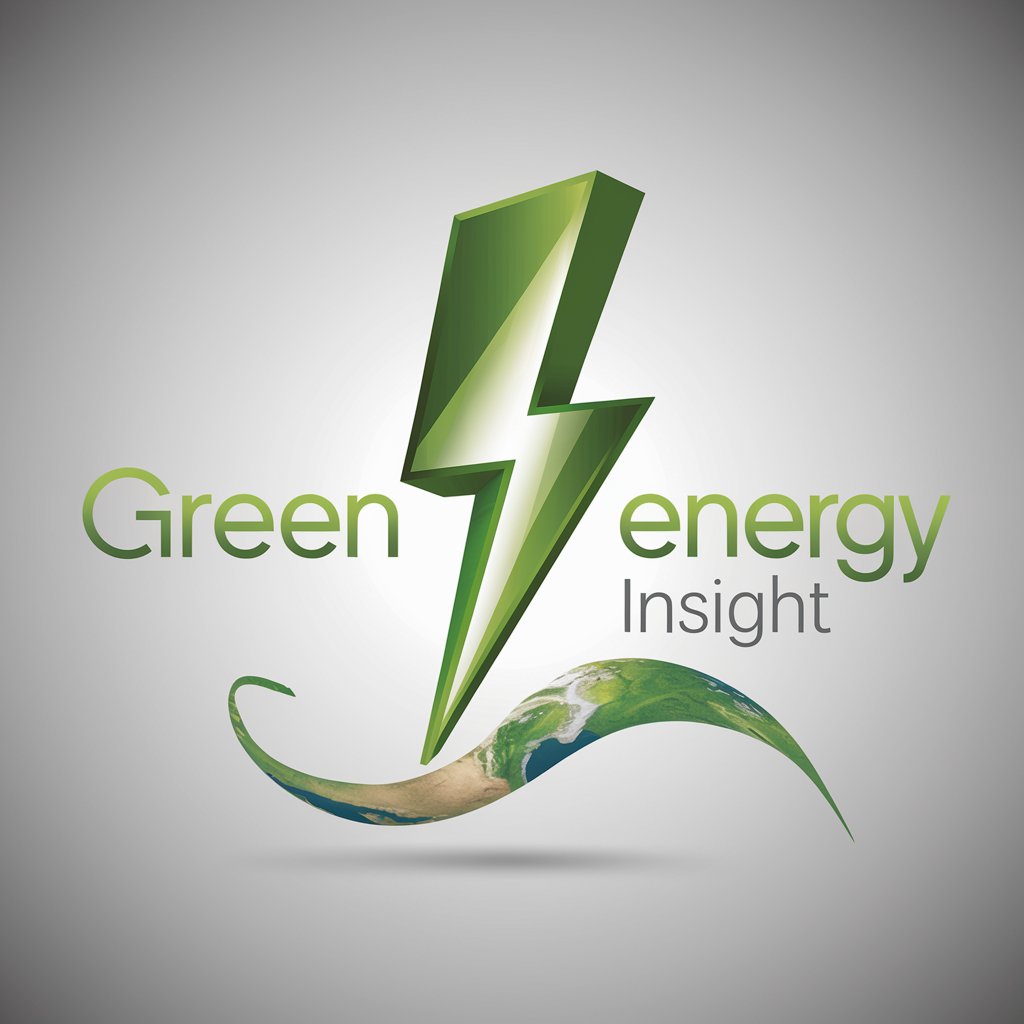
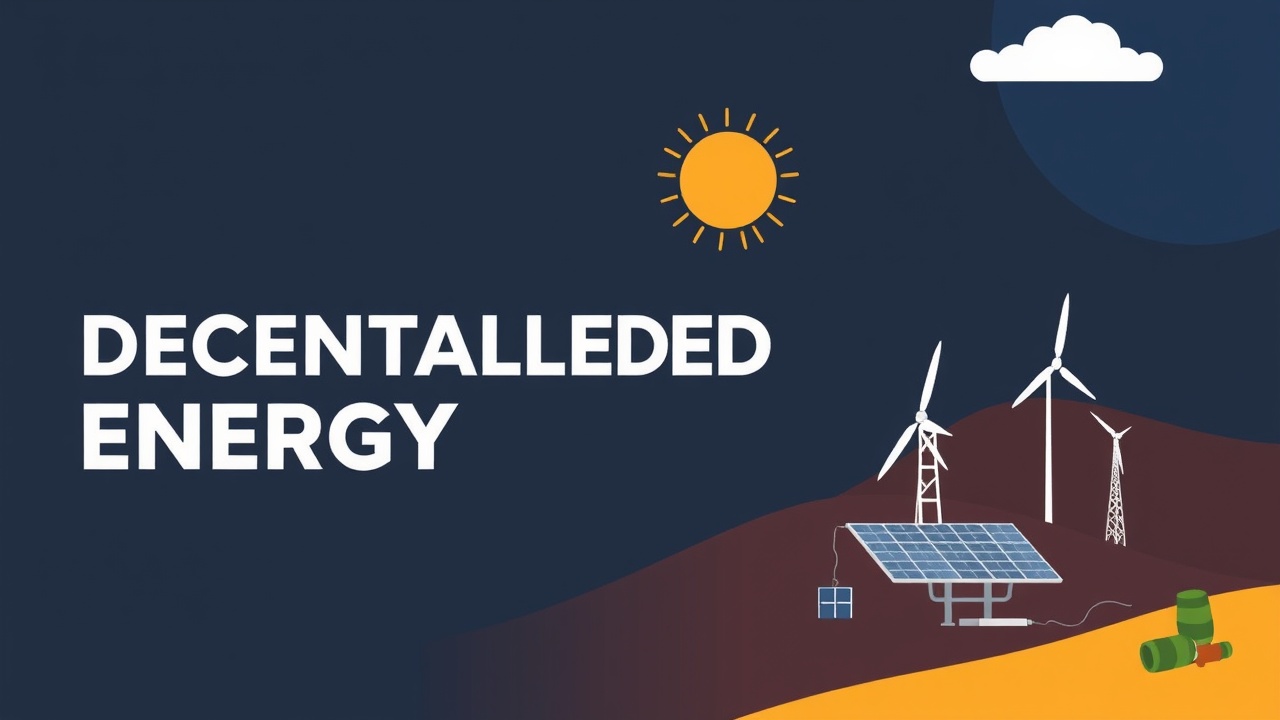

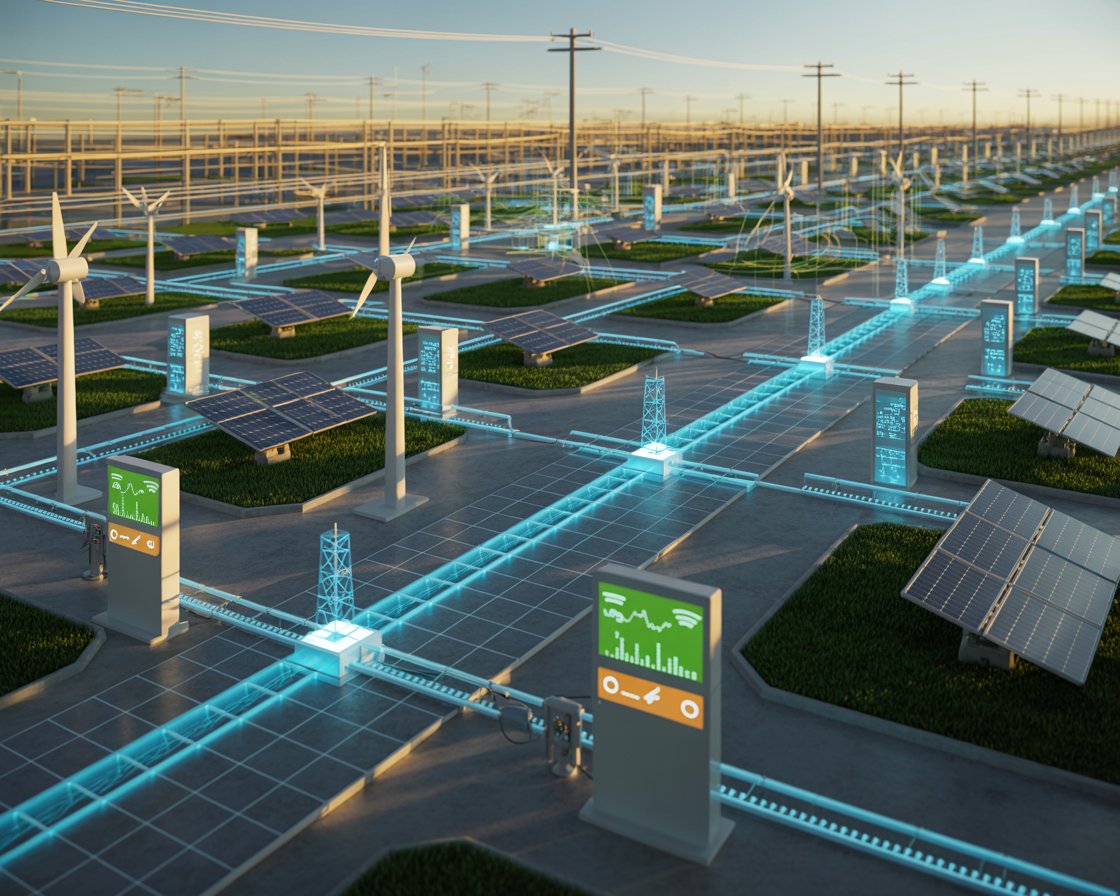
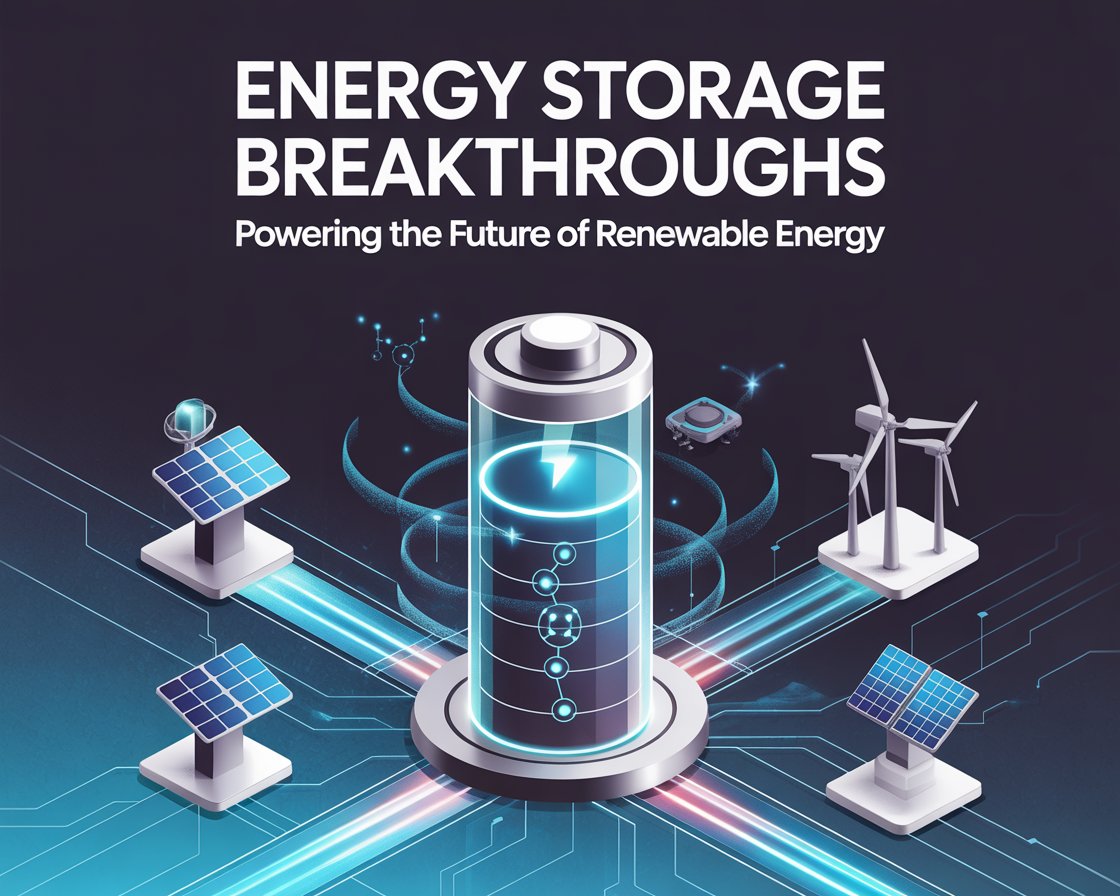
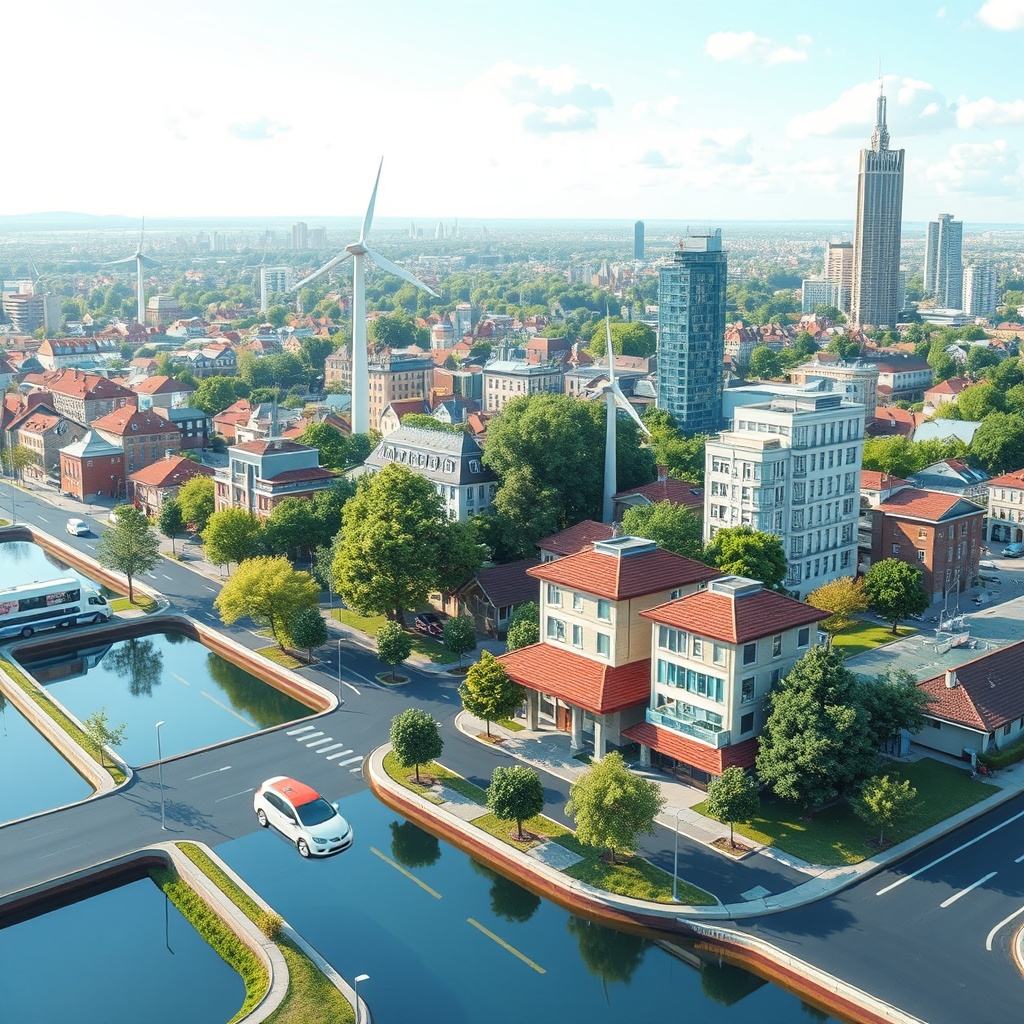
Leave a Reply